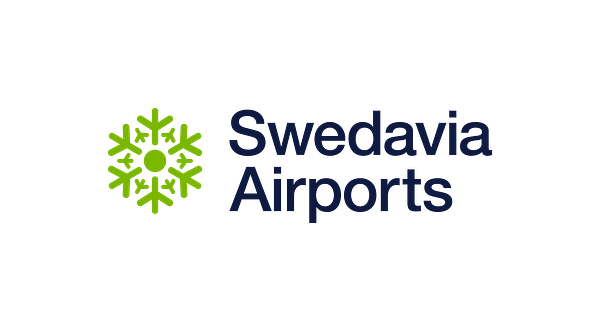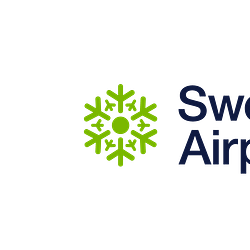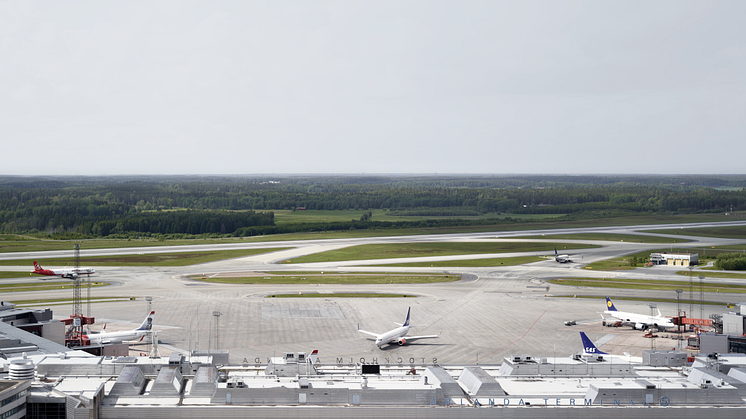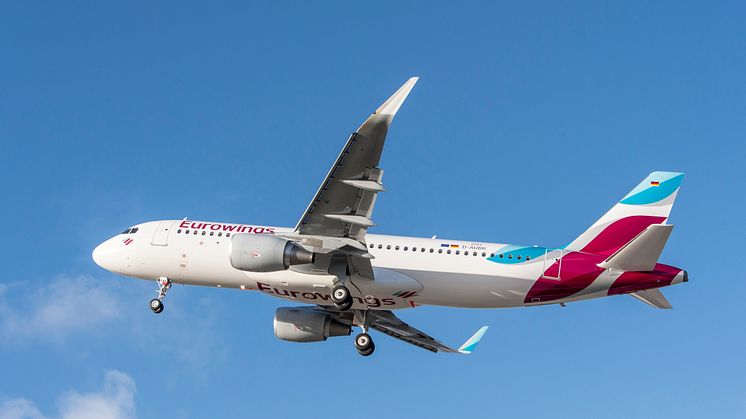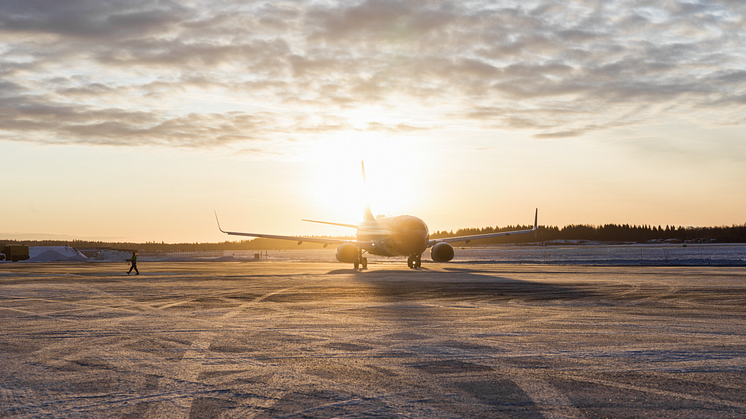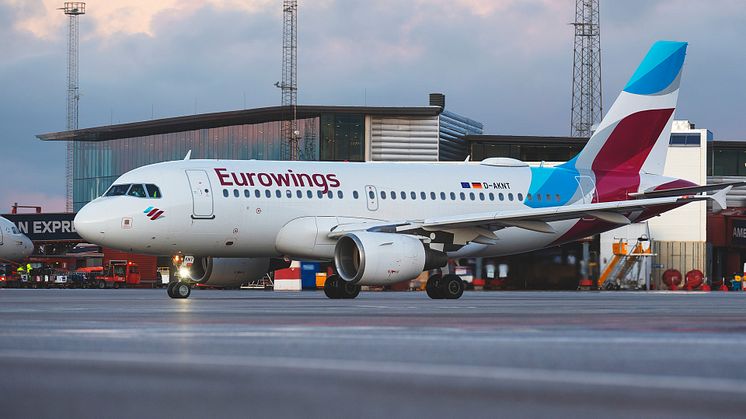
Press release -
Eurowings to strengthen its presence and invest further at Stockholm Arlanda – will add new direct route to Prague this spring
The German low-cost carrier Eurowings sees even more opportunities in the Stockholm region and will expand access by adding a new European route from Stockholm Arlanda. The route, to be launched in early March, is in addition to the airline’s network of routes being launched in conjunction with the establishment of its new base.
Eurowings continues its expansion in Sweden and at Stockholm Arlanda Airport. In conjunction with the summer 2022 programme, the Lufthansa Group’s low-cost carrier will open a new base at Stockholm Arlanda in late March. With the new base, the airline will initially place five aircraft at Arlanda and launch twenty new European destinations, a number of which are new to the airport and supplement Arlanda’s other destinations on offer. Eurowings currently has direct service from Arlanda to Hamburg and Düsseldorf, and before the pandemic also served Cologne. It is now adding another European route and enhancing access to Prague in time for travel this spring.
Prague is a popular weekend destination for Swedes, who can visit attractions such as the Charles Bridge, the old town and Prague Castle. More than 200,000 passengers flew to and from Prague from Sweden before the pandemic in 2019, most of them tourists and less than a quarter of them business travellers.
Beginning March 4, 2022, Eurowings will fly the route Stockholm Arlanda Airport (ARN) – Prague Airport (PRG) non-stop twice weekly on Fridays and Sundays. Tickets are now on sale. For more information about current traffic at Stockholm Arlanda Airport: swedavia.com/arlanda.
Eurowings offers a transfer product, which means you can book connecting flights from another airport it serves and take your baggage with you the entire way. Eurowings is the Lufthansa Group’s low cost carrier and part of the world’s largest airport group. The group works continuously to help protect the environment, tackle climate change and reduce carbon dioxide emissions.
Swedavia has carried out ambitious sustainability work for many years. All ten of its airports achieved the goal of zero fossil carbon dioxide emissions from their own operations by year-end 2020. Swedavia also works actively to promote the switch to biofuel and has the goal that five per cent of all fuel used for refuelling at Swedish airports shall be fossil-free by 2025. Swedavia’s climate transition work and leading work to operate climate-smart airports has been honoured internationally, and in 2021 the aviation industry trade organisation Airports Council International (ACI) named Stockholm Arlanda Airport Eco-Innovation Airport of the Year.
Swedavia complies with the authorities’ advice and recommendations on Covid-19. In addition, we comply with international aviation industry regulations. For information about the measures Swedavia has introduced for safe travel, see for example: swedavia.com/arlanda/before-your-journey.
For further information, please contact Swedavia’s press office at tel. +46 (0)10-109 01 00 or press@swedavia.se.
Related links
Topics
Categories
The Swedavia Group owns, operates and develops ten airports across Sweden. Our role is to create the access Sweden needs to facilitate travel, business and meetings. Safe, satisfied passengers are the foundation of Swedavia’s business. Swedavia is a world leader in developing airports with the least possible environmental impact. The Group had revenue of about 2.5 billion kronor in 2020 and has nearly 2,300 employees.
